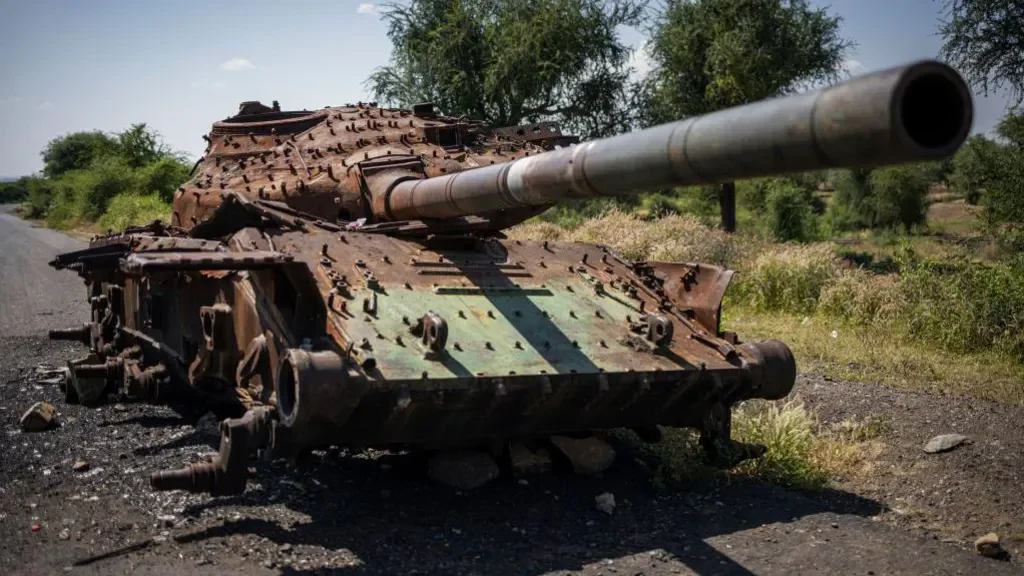THERE are growing concerns over the possibility of armed conflict between Horn of Africa neighbours, Ethiopia and Eritrea, as hostile rhetoric has ratcheted up in recent weeks.
Landlocked Ethiopia’s calls for access to the Red Sea through Eritrea has triggered a fierce war of words.
Ethiopian Prime Minister Abiy Ahmed first openly declared in 2023 that his nation’s access to the sea was an existential matter, comments that Eritrea dismissed.
Relations between the two countries have frequently been strained. After a decades-long battle for independence, Eritrea, which has a 1,350km (840-mile) Red Sea coastline, officially seceded from Ethiopia in 1993, leaving it landlocked.
Five years later, a border war erupted in which more than 100,000 people died.
Abiy and army chief Field Marshal Birhanu Jula have openly claimed ownership of Eritrea’s southern port of Assab – about 60km from the border – and hinted at the desire to take it by force.
On 1 September, Abiy said Ethiopia’s “mistake” of losing access to the Red Sea as a result of Eritrea secession would be “corrected tomorrow”.
Ethiopia’s ambassador to Kenya, retired Gen Bacha Debele, said that Assab was “Ethiopia’s wealth” and would be returned “by force”.
“The question now is not whether Assab is ours or not, but how do we get it back?” Ambassador Bacha told pro-government YouTube Channel Addis Paradigm on 3 November.
On 21 September, army chief Field Marshal Birhanu Jula told soldiers that they would fight a country that had denied Ethiopia access to the sea, a reference to Eritrea.
“Our population is now 130 million and will grow to 200 million in the next 25 years. How come the interests of two million people [referring to Eritrea] override those of 200 million people?” Birhanu asked on 25 October.
“We will strengthen our defence forces, speed up our development and secure a sea outlet.”
In late August, the head of the defence forces’ military diplomacy, Maj Gen Teshome Gemechu, said Ethiopia’s ownership of Assab port “has become our survival interest worth paying any price for”.
The head of the army’s engineering department, Gen Desta Abchie, told a meeting of senior officer that the army was “toiling day in and day out” towards securing access to the Red Sea.
In the face of persistent threats from Ethiopia, Eritrea’s reaction has been limited to short statements on X from Information Minister Yemane Gebremeskel.
He has rejected Ethiopia’s push for access to the Red Sea describing it as “dangerous” and a “toxic agenda” of “irredentism” – a policy of claiming back lost territory.
The information ministry warned on 16 September that attempts to legitimise “flagrant aggression” would have serious consequences for Ethiopia and its neighbours and is a “redline that should not be crossed”.
In a rare reaction to the threats from Ethiopia, the Eritrean army warned in a report on 13 November that Ethiopian leaders should refrain from leading the Ethiopian people into a quagmire.
“The fate of anyone crossing the red line is plunging into an abyss from which they will never have a second chance to learn,” the army said.
There have been no reports of major military movements in the border areas between the two countries.
However, in Ethiopia, state television has shown graduation ceremonies of thousands of cadets at various military training camps.
The head of human resources department of the defence force, Lt Gen Hachalu Sheleme, recently said in an interview that the army was in a “reliable position” as “tens of thousands of youths” were joining it, which he said was “a message to our enemies”.
On 20 September, Ethiopia’s President Taye Atske Selassie promoted 66 senior army officers at Abiy’s recommendation. Taye said on the occasion that Ethiopia’s military preparedness was “elaborate”.
The army has also been parading newly acquired weapons, including artillery, tanks and armoured vehicles on national days.
There have been no comments or military parades by the Eritrean army in public so far.
However, Eritrea has a mandatory national service in which thousands of young men and women receive military training every year.
Pro-opposition Asena TV reported on 15 October that the government had imposed movement restrictions on troops, ordering them to remain within their respective positions.







